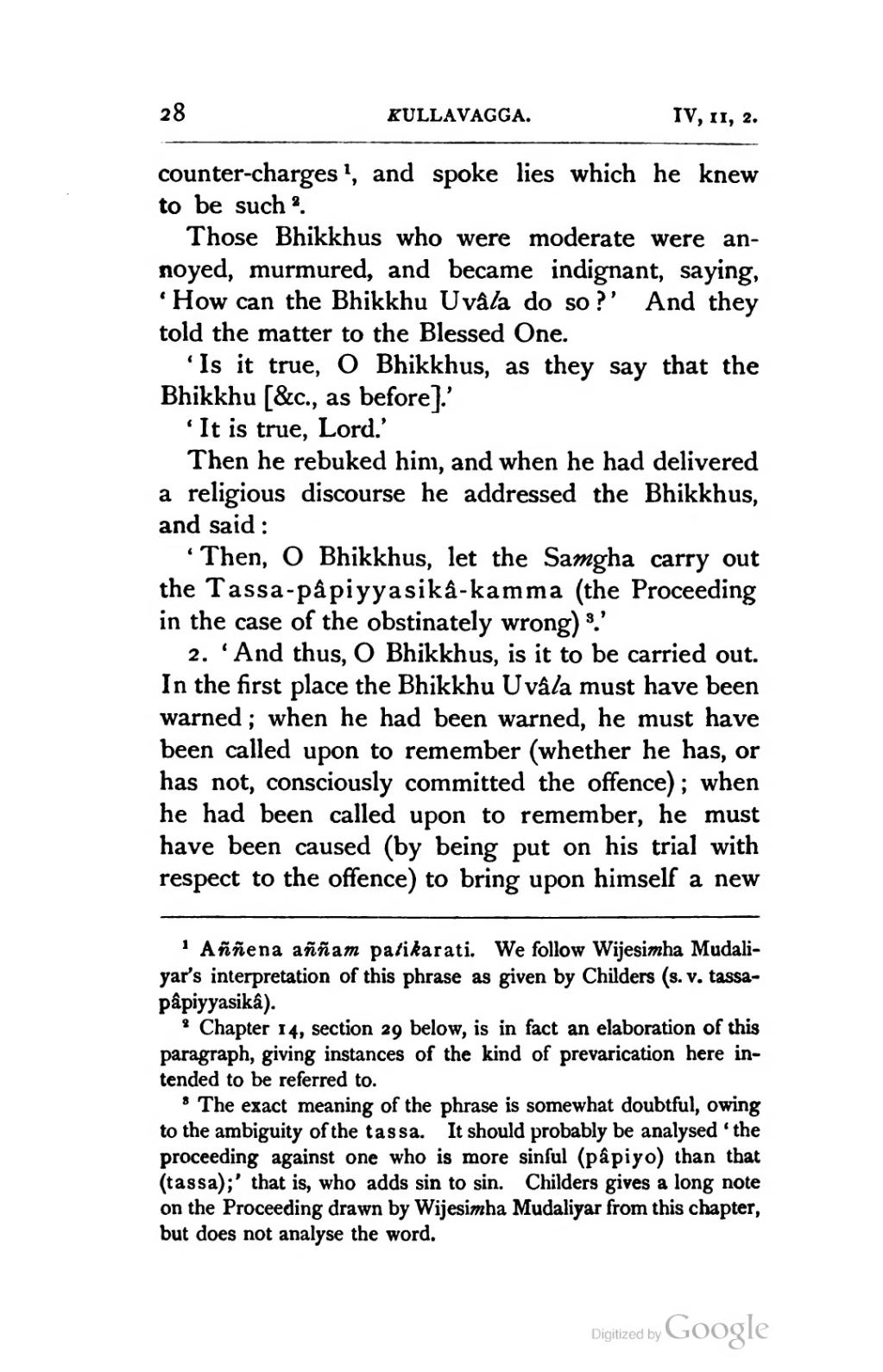28 JOJLLAVAGGA. IV, n, 2. counter-charges 1 , and spoke lies which he knew to be such 2 .
Those Bhikkhus who were moderate were annoyed, murmured, and became indignant, saying, 'How can the Bhikkhu UvS/a do so ?' And they told the matter to the Blessed One.
'Is it true, O Bhikkhus, as they say that the Bhikkhu [&c, as before]/
'It is true, Lord/
Then he rebuked him, and when he had delivered a religious discourse he addressed the Bhikkhus, and said: 'Then, O Bhikkhus, let the Sa^gha carry out the Tassa-pdpiyyasikd-kamma (the Proceeding in the case of the obstinately wrong)
2. 'And thus, O Bhikkhus, is it to be carried out. In the first place the Bhikkhu Uvi/a must have been warned; when he had been warned, he must have been called upon to remember (whether he has, or has not, consciously committed the offence); when he had been called upon to remember, he must have been caused (by being put on his trial with respect to the offence) to bring upon himself a new
Annena annam pa/i^arati. We follow Wijesitfiha Mudaliyar*s interpretation of this phrase as given by Childers (s. v. tassa-p£piyyasik&).
Chapter 14, section 29 below, is in fact an elaboration of this paragraph, giving instances of the kind of prevarication here intended to be referred to.
The exact meaning of the phrase is somewhat doubtful, owing to the ambiguity of the tassa. It should probably be analysed * the proceeding against one who is more sinful (p&piyo) than that (tassa);' that is, who adds sin to sin. Childers gives a long note
on the Proceeding drawn by Wijesi/wha Mudaliyar from this chapter, but does not analyse the word.
